There’s no getting around it, we’re coffee obsessed. A whopping sixty-four percent of Americans are daily coffee drinkers. Averaging 3 cups per person, Americans drink over four-hundred million cups of coffee per day (1). But, why do we crave coffee so much, and should we be worried? Are we addicted to the stuff? It’s time to set down the mug and face the caffeine. It’s time to find out why most of us would rather wake up alone than face a morning without coffee.
What is a coffee addiction?
Before we go any further, let’s separate the coffee lovers from the coffee addicts. There are millions of people who adore the complex flavors and aromas of a perfectly brewed cup of coffee. Walk down any main street in American and you’ll find millennials gathered in gourmet coffee shops willing to fork over their hard-earned cash for a coffee drink with a convoluted name and indulgent description. They brew coffee at home with single-origin beans, and for them, coffee is a lifestyle. If you’re one of them, relax! This post isn’t about you.
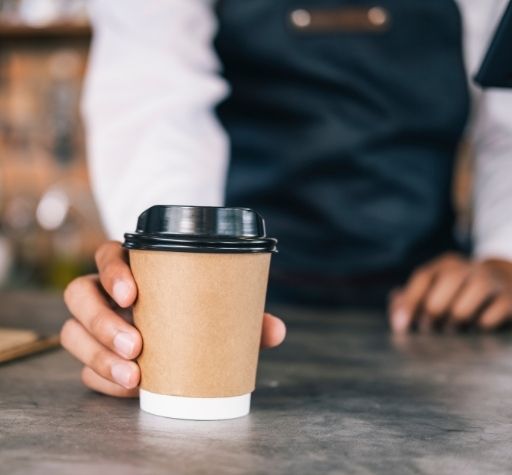
Coffee addiction is far different from coffee passion. According to the American Addiction Centre, “Addiction is the repeated involvement with a substance or activity, despite the substantial harm it now causes, because that involvement was (and may continue to be) pleasurable and/or valuable” (2). Sounds about right. Now, ask yourself these questions:
- Do you drink a cup of coffee within twenty minutes of getting up in the morning?
- Do you stop for coffee on the way to work?
- Do you refuse to do any work until you’ve had a cup of coffee?
- Do you drink more than four cups of coffee a day?
- Do you have a cup of coffee with every meal?
- Do coffee brands matter to you?
Well, you get the idea. If coffee is a big part of how you get through the day. You may suffer from an unhealthy reliance on your daily fix. That’s not to suggest coffee is entirely harmful, but any type of dependence is worth a second look. Like all addictions, a coffee addiction has to be measured by the negative impact it has on your mental and physical health. It’s not just the caffeine in coffee that leads to addiction, but it is the biggest part of the equation.
Coffee and Caffeine addiction
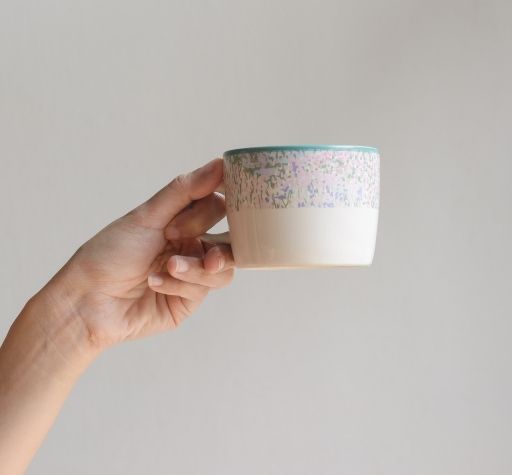
When most people talk about an addiction to coffee, they are referring to a caffeine addiction, and the cravings and withdrawals that come from it. Caffeine is a common ingredient in many commercial beverages and supplements, and most of us regularly consume moderate amounts of the stimulant. It is when our bodies become Heavily dependent on caffeine that our mental and physical health is at risk.
What is caffeine?
Caffeine is a naturally occurring stimulant and is found predominantly in coffee, tea, and cocoa plants. When it is consumed, it is rapidly distributed to the bloodstream and affects many organs, including the brain. It works to block adenosine, the neurotransmitter responsible for drowsiness. Regular Doses of caffeine through the day fight the increasing levels of adenosine in the brain, and keep us feeling alert. It is fast-acting. After consuming a cup of coffee, the caffeine is active in the bloodstream within twenty minutes (3).
How much caffeine is safe?
For daily consumption, keep your caffeine intake below four-hundred milligrams to avoid any harmful affect. What is considered a safe amount of caffeine is impacted by age, bodyweight, underlying health concerns, heart conditions and caffeine sensitivity. To figure out your recommended intake, check out Caffeine Safe Limits: Calculate Your Safe Daily Dose
How much caffeine is there in coffee?
Roast type, brewing method, and drink size all have an influence on the amount of caffeine in a cup of coffee. Here are some general guidelines:
- An 8oz cup of brewed coffee contains around 96mg caffeine.
- A 30ml shot of espresso contains around 64mg caffeine.
- An 8oz of instant coffee contains around 62mg caffeine.
- Dark roasted beans contain less caffeine than medium and light roasted beans.
- Light coffee roasts contain the most caffeine.
Remember, coffee roasting and brewing is as much science as it is art. For this reason, any indication of the amount of caffeine in a serving is usually only an estimate. If you are drinking less than four cups of coffee a day, you don’t have much to worry about.
What is decaffeinated coffee?
If you’re concerned about caffeine intake, you can opt to use decaffeinated beans. A decaf coffee has ninety-seven percent of its caffeine removed by soaking the beans in an organic solvent. Caffeine can also be removed through the use of a charcoal filter or carbon dioxide. In general, decaffeinated coffee has a milder flavor and aroma. An 8oz cup of brewed decaf contains around two milligrams of caffeine and can be a great substitute for your regular coffee when you are craving coffee.
Caffeine in drinks other than coffee
When you think about caffeine, coffee is often the first drink to come to mind. Many other drinks also contain caffeine, and the amounts might surprise you:
- An 8oz cup of brewed black tea contains around 47 milligrams of caffeine.
- An 8oz cup of brewed green tea contains around 24 milligrams of caffeine.
- An 8oz glass of cola contains around 22 milligrams of caffeine.
- An 8oz energy drink contains around 29 milligrams of caffeine.
- A 30ml energy shot contains around 215 milligrams of caffeine.
Is too much caffeine bad?
Absolutely. As we mentioned earlier, a daily intake of less than 400 milligrams of caffeine doesn’t usually result in any adverse effect. However, too much caffeine can have a dramatic impact of your quality of life. Take a look at some known side effects of prolonged excess caffeine intake:
- Increased anxiety
- Depression
- Rapid mood swings
- Irritability
- Nervousness
- Cardiovascular issues
- Twitching of muscles
- Stomach-aches
- Acid reflux
- Reduced concentration
- Difficulties in social situations
- Headaches
- Visual disturbances
How to decrease caffeine intake
If you’re concerned about your caffeine intake and constantly crave coffee, but can’t bear the thought of living without coffee, then there are a few steps you can take to get things under control. It’s all about finding the right balance between dependence and enjoyment.
- Restrict yourself to three cups of coffee a day. Have that first cup of coffee in the morning, but don’t have a second until midday. When you crave coffee, avoid having coffee with food, because the combination tends to become habitual.
- Make coffee a social experience. Try restricting coffee intake to breaks with co-workers or classmates. This puts the emphasis on social interaction rather than caffeine intake.
- When making coffee at home, avoid brewing that involves soaking grounds in water. Stick with drip coffee or pour-over brewing where a paper filter helps reduce the number of solids that make it into the brew.
- At the coffee shop, insist on them using only one 30 millilitre shot of espresso in your latte or cappuccino. They often use two or more.
- Use darker roasts as they have less caffeine than medium and light roasts.
- Avoid having a coffee during a smoke break. If every time you grab a smoke, you pour a coffee, you’re doubling down on your addictions.
- Try drinking an Americano rather than brewed coffee. An Americano is made by pouring hot water over a single shot of espresso. Remember, a shot of espresso has around 64 milligrams of caffeine compared to the 96 milligrams in a cup of brewed coffee.
Is it only the caffeine we crave in coffee?
There’s plenty of reasons people crave coffee, and caffeine is only one of them. Coffee cravings are often associated with low catecholamines. These are the hormones produced by your adrenal glands.
They include adrenaline, dopamine, and norepinephrine. Coffee stimulates these hormones and convinces your brain you need even more of them.

If you’re wondering why coffee makes you happy, it’s because it feeds the neurotransmitters in your brain. Coffee contains amino acids which change the brain chemistry much like sugar, alcohol, tobacco and drugs. When the level of amino acid decreases in your brain, you head to the coffee station and pour another cup.
Does coffee have any health benefits?
So, it’s not all bad news. In moderation, coffee has some health benefits to offer. After all, caffeine gives us energy and prepares the body for exertion. Caffeine also improves focus, heightens memory, and decreases drowsiness.
Coffee contains both potassium, and magnesium. These minerals help your body manage insulin, and regulate blood sugar levels. They help in reducing your craving for sweet and sugary food.
A cup of coffee can satisfy the recommended daily intake of important minerals (4)”.
- Magnesium and niacin (vitamin B3): 2% of the RDI.
- Manganese and potassium: 3% of the RDI.
- Riboflavin (vitamin B2): 11% of the Reference Daily Intake (RDI).
- Pantothenic acid (vitamin B5): 6% of the RDI.
Beyond the realm of simple nutrition, there are some studies suggesting coffee can reduce the risk of Type 2 Diabetes, help prevent Parkinson’s disease, lower the risk of liver cancer, and reduce risk of heart disease (5). Not bad for the two little seeds of a coffee cherry!
Moderate your coffee crave
Coffee is beloved worldwide, and for good reason. Few other drinks have the versatility, complexity, diversity and celebrated romance. For most of us, it would be hard to start the day, let alone survive it, without a piping hot cup of the good stuff. It prepares our bodies to work, study, train, and endure. It gives us focus, improves our thinking, and tells our brains that everything is going to be okay. A cup of coffee can start a relationship, plan a future, nurse a breakup, spark gossip, and even hold the memories of a better time and place.

There are those who warn us about the negative health consequences of caffeine in coffee. They speak of depression, anxiety, insomnia, irritability, headaches, and poor social functioning. But we also know caffeine helps control diet, burn fat, and increase mental focus. When we keep our daily intake of coffee under 400 milligrams, we can reduce the risk and leverage the benefits. Three or four cups of coffee a day strikes the right balance between pleasure, need, and dependence.,
So, what’s the bottom line. Coffee drinkers can relax in the sure knowledge that the amount of caffeine in a cup of coffee isn’t a worry. What matters, is the role coffee plays in your life. If you had to go without coffee for a day or two, could you cope? Try and change your daily coffee drinking routine and find out whether you love coffee, crave coffee, or have become a slave to the brew.
IF YOU’VE ENJOYED THIS ARTICLE, GIVE IT A PIN!









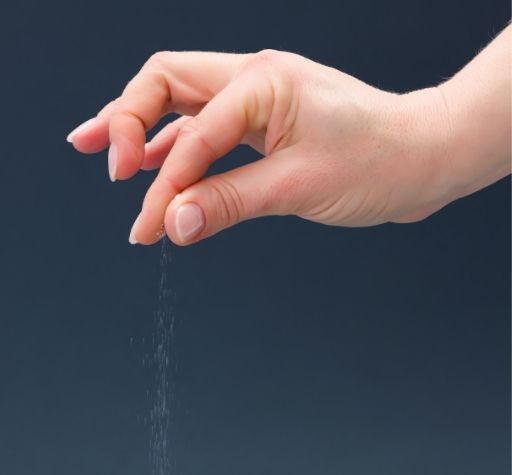


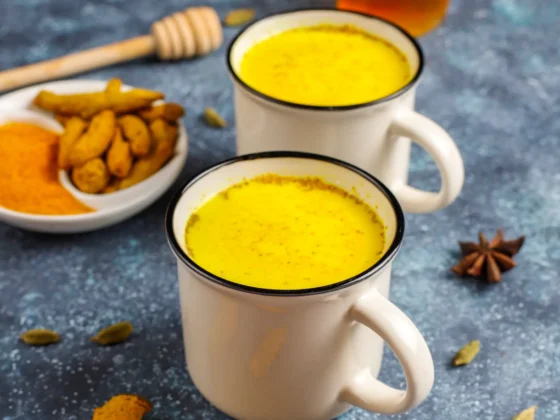
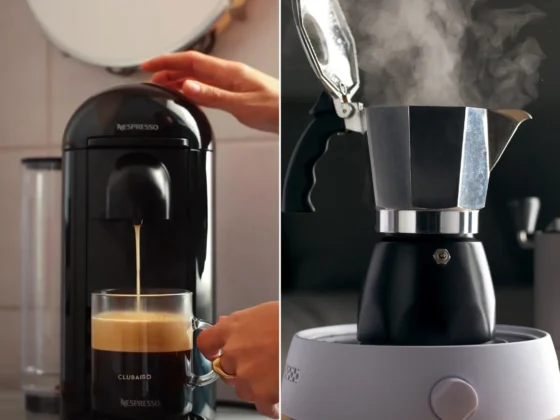
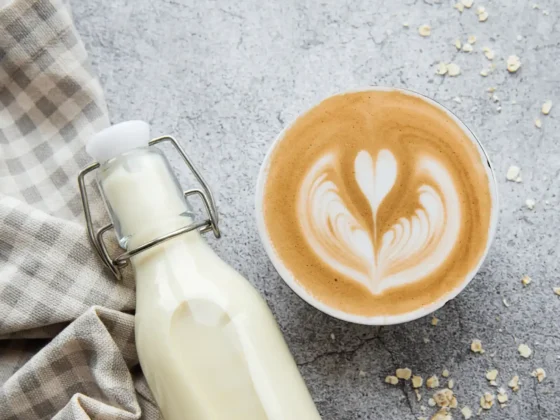
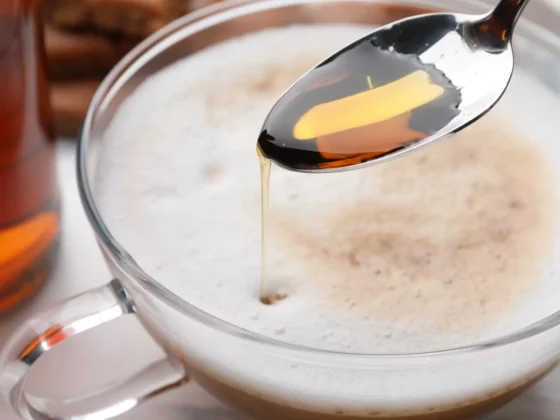
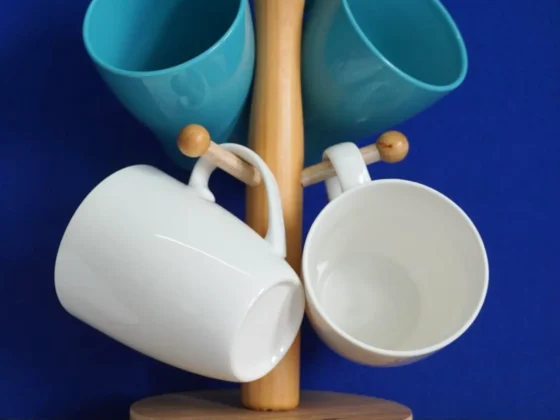
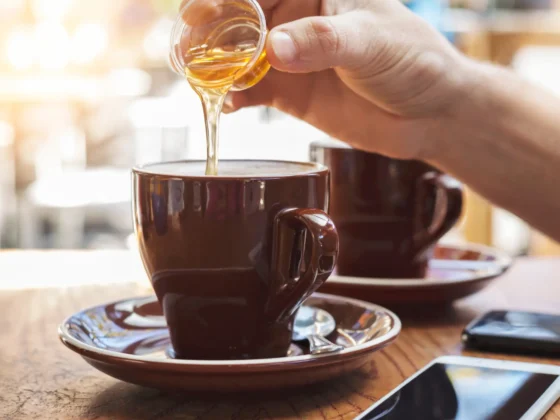
2 comments